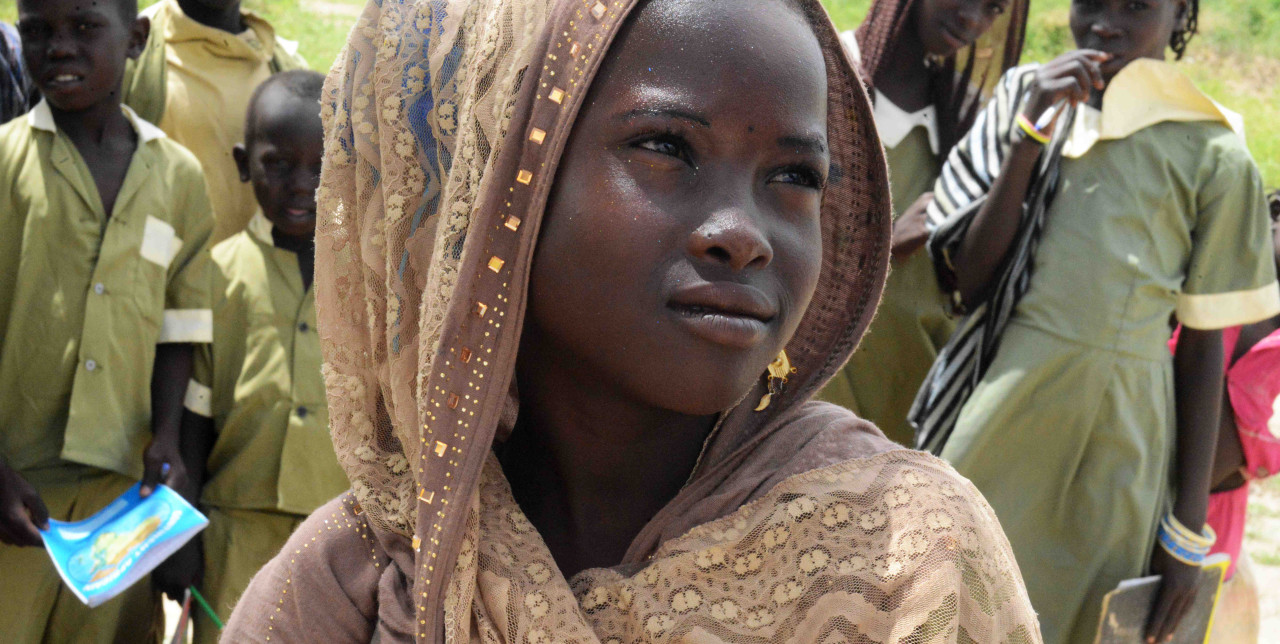23-01-2018 | di COOPI
Female education in Cameroon against indoctrination
In the Far North Region of Cameroon affected by Boko Haram’s attacks and by a marked food emergency, women and girls are on the frontline. In fact, in the attempt to control the territory, the Islamist group has caused many victims among the heads of the families of the local communities. As a consequence, not only have widows and daughters been obliged to become responsible for the sustenance of their family units, but they must also take care of their own protection, as they have become the new targets of the attacks.
The protection of these vulnerable subjects - together with food security (link here) - falls within COOPI’s "Riedupace" project, financed by AICS (Italian Agency for Development Cooperation). The aim is to provide high quality education, to train qualified teachers, to restore and construct school buildings and rooms, to distribute school material (exercise books, books, pens) and to provide for financial contributions for the neediest recipients.
To educate young female students equals providing them with the possibility to develop critical thinking, indispensible in withstand ideological indoctrination. In fact, it frequently occurs that women and children are those to be lured by Boko Haram and persuaded to carry out kamikaze attacks in the name of religious extremism and a “legitimate cause,” a phenomenon that then leads the other members of the community to further isolate them.
Therefore, school education guarantees the possibility for young female students to acquire, in the long-run, independence and autonomy: indispensible elements to fight against the widespread local laws that conceive education as an exclusive right of male children and not female. In fact, in the majority of the cases, female children are started off to a domestic life from a very young age.
Another benefit of the educational path consists in providing them with a birth certificate, indispensible for carrying out their final exams. It often occurs that they are lacking their birth certificate because born in localities without registry offices.
Education is therefore a key turning point for a different and better future.
Vincenzo Altomare, coordinator of COOPI’s projects in the Country, says: «[…] Particular attention is devoted to girls, as they are the most vulnerable amongst the vulnerable. Families give them in marriage when they are very young, around nine or ten years of age. […] To keep them at school as long as possible, to offer them an education, also means to give them access to instruments capable of changing their lives, thus also contributing toward a social change».




 Cameroon
Cameroon